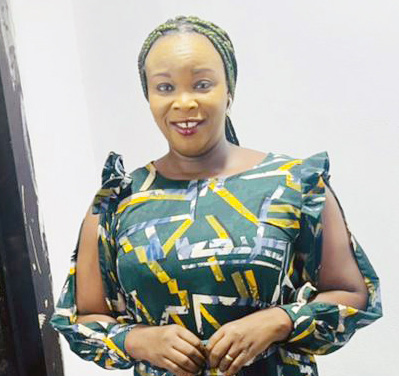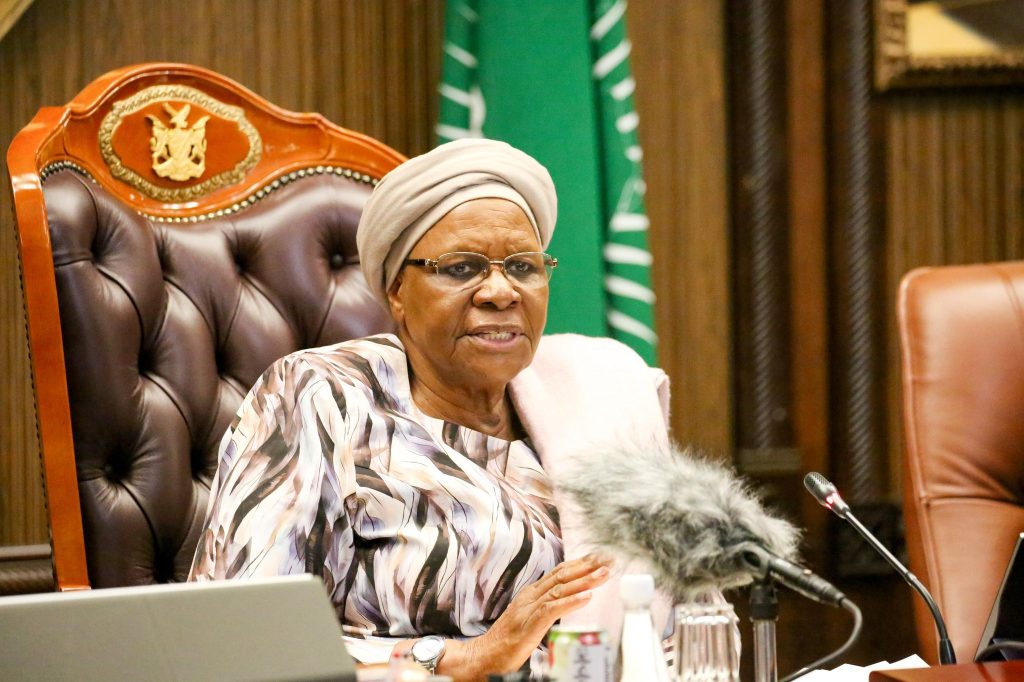By Seyi Taiwo-Oguntuase
Copyright independent

Toyin Oluyeye, a fashion entrepreneur and tutor, is the founder and CEO of Excellent Home Fashion. In this interview with SEYI TAIWO-OGUNTUASE, she shares the story behind her fashion brand, her journey into the industry, challenges faced, and how she hopes to empower more Nigerian youths through fashion. Excerpts:
What led you to fashion?
Fashion design, for me, is a way of express-ing my artistic and creative side. I have always had a deep passion for fashion and a strong in-terest in clothing and textiles from a young age.
It became clear to me that fashion was not just about clothes; it was about identity, cre-ativity, and impact. It gave me the platform to express myself and to create things that speak to others.
I realised early that fashion helped me bring my artistic imagination to life through elegant, well-crafted designs. I found joy in styling peo-ple and seeing how confident they felt in the outfits I made. That satisfaction pushed me to take fashion more seriously.
I also desired to become an entrepreneur be-cause I wanted the freedom to build something of my own.
During my teenage years, I regularly attend-ed vocational classes during holidays, and over time I developed a deep love for pattern drafting, fabric selection, and dressmaking. It was more than just a hobby, it was a calling. With time, people started noticing my work and were will-ing to pay for my designs, which gave me more confidence.
As I grew older, I realised fashion wasn’t just a passion, it could be a career and a business that could sustain me and help others.
You earned a degree in Public Administration. Would you say your decision to go into fashion paid off?
Absolutely. I strongly believe I am better off as a fashion designer. While public adminis-tration gave me some foundational knowledge, fashion gave me fulfillment and freedom.
Like they say, success isn’t measured solely by financial gains. Today, I have time for my family, I dictate my own schedule, and I deter-mine how much I want to earn.
Fashion allows for flexibility. I can take on big contracts or pause when I need to focus on my family or personal matters. I also enjoy mentor-ing upcoming designers, which wouldn’t be pos-sible if I were working in a rigid office setting.
In fact, there have been instances where a single social media post about one of my de-signs brought in hundreds of followers and po-tential customers overnight. That’s the unpre-dictable beauty of entrepreneurship. You never know what blessing the next day might bring.
And beyond all that, the joy of doing what I love makes everything worth it. When you’re passionate about your work, it stops feeling like a chore, then it becomes something you look forward to each day.
Tell us about your brand?
Excellent Home of Fashion is a brand fo-cused on delivering exceptional designs tailored to women.
We specialise in creative, high-quality gar-ments that stand out, not just in appearance but in craftsmanship. Our designs are elegant, modern, and made with love.
The brand stands on the pillars of creativity, quality, and sustainability.
We are intentional about using fabrics that not only look good but feel good and last long. Every piece we create is done with the customer in mind what suits their body type, their person-ality, and their lifestyle.
Apart from dressmaking, the brand also in-vests in training aspiring designers.
We run fashion classes to empower those who are passionate about sewing, tailoring, or even just learning how the fashion industry works. I’ve had the opportunity to mentor many young women and even a few men and it’s fulfill-ing to watch them grow their own businesses.
For me, it’s not just about creating clothes. It’s about creating opportunities, building con-fidence, and helping people see the potential in themselves.
How did you get started in the industry?
I have been making clothes since the early 2000s. But, the brand name Excellent Home of Fashion officially came into being in 2014. I wanted to create something that truly repre-sented my values and aspirations in the fashion world.
The brand is a female-focused label driven by a deep passion for creativity.
Our goal is to balance African heritage with Western sophistication. We use bold African prints, lace, silk, chiffon, and other high-quality fabrics to craft garments that are timeless.
I made the decision to turn my skill into a ca-reer after mastering the technical and creative aspects of dressmaking. It was no longer just about sewing for friends and family; it became about building a brand people could trust.
I love that I can plan my time. I decide when to market aggressively and when to slow down to focus on fulfilling existing orders.
I can plan for expansion or step back and re-strategize. That level of control is something that most paid jobs can’t offer. In contrast, with a 9-to-5, your salary is fixed, promotions aren’t guaranteed, and there’s always some uncer-tainty.
That’s why I chose self-employment. I want-ed control over my life and to make a real dif-ference through fashion.
What challenges did you face as an entrepreneur?
Like most entrepreneurs, fear was one of the biggest early challenges. I wondered: Will people patronise me? Will they like my designs? But I pushed through those fears.
Funding was another major hurdle. Starting a fashion brand isn’t cheap fabrics, machines, tools, space, staff it all adds up. But thanks to support from friends and family, I managed to get started.
Infrastructure issues, especially electricity, remain a huge challenge. Power supply is often erratic; sometimes we only get electricity for a few hours in a day.
We rely heavily on generators, which in-creases running costs. But we’ve learned to adapt and plan around it.
Another challenge is accessibility reaching the right government agencies for support, grants, or technical assistance.
Many small-scale business owners don’t even know where to begin. I believe more aware-ness and easier access to these support systems would help entrepreneurs thrive.
What is your brand’s commitment to exceptional designs?
We live in a world that constantly craves in-novation, and at Excellent Home of Fashion, we embrace that challenge. Our designs are carefully curated to be bold, elegant, and un-forgettable.
Each collection we produce reflects our core belief in originality. We do not copy we create. Whether it’s a casual outfit, a bridal gown, or a red-carpet look, we ensure each design meets the highest standard.
Our clients know that when they come to us, they’ll leave with something unique, something that turns heads. We listen to our customers’ needs and translate their ideas into reality with a creative twist.
Customer satisfaction is our ultimate goal. We’re here not just to meet expectations but to exceed them.
What should the government do to support female entrepreneurs in Nigeria?
The government can support women en-trepreneurs in many impactful ways. First, through access to funding grants, soft loans, and financial incentives designed specifically for women-led businesses.
Loan guarantee schemes and microfinance options could bridge the gap many women face in accessing capital.
Secondly, government agencies should de-sign entrepreneurship training and develop-ment programmes tailored to women.
These programmes must take into account the unique challenges we face—balancing work and family, limited access to mentors, and navi-gating male-dominated spaces.
Another key area is mentorship and net-working. The government can partner with organisations already mentoring women in business. Research shows that mentorship increases a business’s chance of success, espe-cially in the early stages.
Finally, policies must promote inclusive lend-ing practices and remove unnecessary bureau-cracy. Simplifying access to support services will go a long way.
African attire is gaining global recognition. What do you think is driving this?
African attire is rich with cultural meaning and visual appeal.
Our fabrics—ankara, kente, adire, lace are vibrant, bold, and full of personality. Each piece tells a story. That’s something people around the world are drawn to.
Thanks to globalization and social media, African fashion now reaches global audiences faster than ever. Celebrities and influencers wearing African prints have increased visibil-ity for our culture.
Also, people are becoming more conscious of cultural identity and expression. Wearing Afri-can attire makes a statement. It boosts self-con-fidence, promotes pride in one’s heritage, and supports African businesses.
Where do you hope to see your brand in the future?
My vision is to grow Excellent Home of Fashion into a household name, with branches across Nigeria and internationally. I want the brand to be synonymous with creativity, quality, and empowerment.
Beyond business expansion, I want to contin-ue impacting lives. I see myself training thou-sands of youths, especially women, and giving them the tools to become self-reliant. With the way our economy is going, multiple streams of income are no longer a luxury—they are a necessity.
Fashion is a powerful tool. It gives people dig-nity, a source of livelihood, and the freedom to shape their own future. My mission is to help as many people as possible discover that power.



